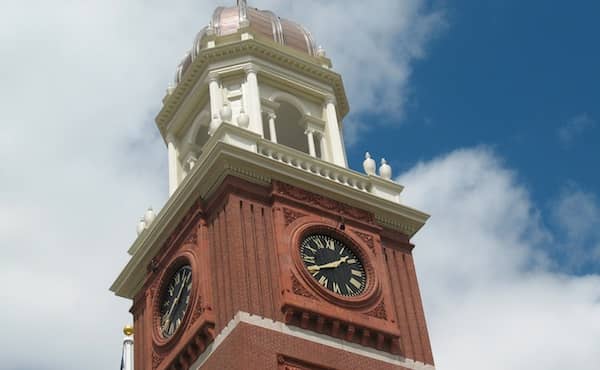

WARWICK, RI — Warwick ended FY22 in better fiscal shape according to its latest audit, with higher revenue and lower costs leading to more money in the city’s reserve accounts and a no-tax increase budget in FY23.
Mayor Frank Picozzi announced that, according to the audit by CliftonLarsonAllen LLP, the city took in $2 million more in revenue and reduced spending by $4.1 million from the amounts budgeted for FY22. As a result, the city had “no necessity to draw down [its] fund balance,” Picozzi said, resulting in an overall $6.5 million increase in the city’s reserves, from $26.6 million to $33.1 million.
In an email statement, Picozzi said the unassigned fund balance represented almost 10 percent of the city budget, which “provides a strong foundation for the City moving forward.”
At the same time, Picozzi also acknowledged that the city has been using ARPA funds to balance its books, which still left “structural deficit issues,” according to the Warwick FY22 budget.
The current Warwick FY23 budget uses some $17 million in ARPA money to fund new projects and avoid a potential tax increase while recalling some 40 laid off city workers and plugging an estimated operating deficit of $5 million.
Picozzi said in his FY23 budget letter that applying the ARPA funds to these projects — which include an outdoor ice rink, updates to Public Works vehicles and equipment, road repaving, and upgrading school technology — would save “a conservative estimate” of $2 million in interest and other costs from the city not having to float bonds for the work or lease the equipment.
FY22 audit release consistent with prior years
The audit’s release date of April 5, 95 days after the Dec. 31 deadline set by state law, is only slightly later than most audits from the last 10 fiscal years:
- Fiscal 2013 Audit: Dated Jan. 31, 2014 (31 days after deadline)
- Fiscal 2014 Audit: Dated March 31, 2015 (91 days after deadline)
- Fiscal 2015 Audit: Dated March 31, 2016 (91 days after deadline)
- Fiscal 2016 Audit: Dated May 1, 2017 (121 days after deadline)
- Fiscal 2017 Audit: Dated March 14, 2018 (73 days after deadline)
- Fiscal 2018 Audit: Dated July 23, 2019 (204 days after deadline)
- Fiscal 2019 Audit: Dated May 1, 2020 (121 days after deadline)
- Fiscal 2020 Audit: Dated March 24, 2021 (84 days after deadline)
- Fiscal 2021 Audit: Dated Jan. 25, 2022 (25 days after deadline)
Finance Director Peder Schaefer recently attributed the delay to the complexity of Warwick’s budget, which unlike other communities includes water and sewer systems managed by the city. Those so-called enterprise funds are paid through user fees, separate from property taxes.
Also contributing to the audit’s tardiness are accounting for the city’s retirement funds and waiting for the school department’s year-end numbers, Schaefer explained.
What does this mean for FY24?
As Picozzi prepares to submit a budget for the upcoming fiscal year, several factors noted in the FY22 audit could come into play, including the city-wide property revaluation that was delayed until this year and the city council’s approval of a plan to reformulate the ratio of taxes charged to residential and commercial properties.
Tax Assessor Neil Dupuis recently told the city council that the change in tax ratios is meant to give the city more flexibility in setting rates for the different types of property. Currently, 75 percent of the city’s tax revenue is generated from residential properties; the proposal would allow the city to reduce that to 57 percent.
Following the city council’s recent 8-1 approval of the resolution, the proposal now goes to the RI General Assembly.
Council President Steve McAllister said the city council’s hearings on the FY24 budget are scheduled to begin on May 22.
This is a test
